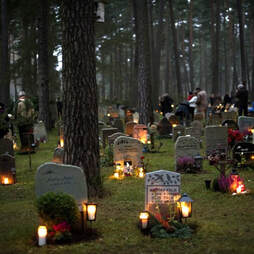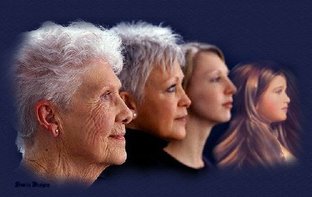
Stories are at the centre of the events – from survivors but more commonly now their children and from young people who have visited Auschwitz. Each year two pupils from every secondary school in Glasgow have the opportunity to do this and for them it’s a life changing experience, one which they are able to share at Holocaust Memorial events. This year we heard two stories. The first story we heard was of Rostov-on-Don, a town in Russia where 27,000 inhabitants, more than half of whom were Jewish women and children, were slaughtered by the Nazis while their husbands, sons, brothers and fathers were fighting for Russia in the war. What made this story so compelling was the similarity between Rostov-on- Don and Glasgow and the presence of some citizens from there. This atrocity happened over two days in August 1942.
The second story was that of Rabbi Meir Lau, a former chief Rabbi of Israel who now serves as the chairman of Yad Vashem, the Holocaust Memorial in Jerusalem. By video Rabbi Lau told us of how, as a young boy of 7, he was separated from his family apart from his brother who saved him from certain death by carrying him in his backpack. They were both sent to Buchenwald concentration camp and Meir was put in barrack 8 which housed young people and children. There he was befriended by 16 year old Feodor who looked out for him, stealing potatoes, lighting a fire and cooking them for the little boy, even knitting ear warmers to protect him from the freezing cold. "Feodor, the Russian, looked after me in the daily life like a father would for a son. His concern and feeling of responsibility gave me a sense of security." Rabbi Lau never knew Feodor’s family name so was never able to find him until 65 years after liberation he discovered that Feodor had died but survived by two daughters. One of his daughters was with us at the Scottish National event, proudly displaying a picture of her father and moved to tears by the reception she got.
The Holocaust is a terrible blight on the history and memory of our race. It fundamentally challenges the foundations of our civilisation and yet though, as the Stockholm Declaration tells us “the magnitude of the Holocaust, planned and carried out by the Nazis, must be forever seared in our collective memory, so too we must remember the selfless sacrifices of those who defied the Nazis, and sometimes gave their own lives to protect or rescue the Holocaust's victims.” The Holocaust is like a mirror – it reflects the best and the worst of our species. It shows our capacity for evil and for good, for all of us are capable of such things. If one human being can commit such atrocities then we can all do it but if one human being can rise to the heights of heroism then we can all do that too.
One of the reasons, perhaps the main reason, for remembering the Holocaust is that it should never happen again. And yet it has happened again. Now we remember at these events the subsequent genocides of Cambodia, Bosnia, Darfur, Rwanda and the previous one of the Armenian people. History shows that there have been many attempts at genocide. I read recently of a call to recognise the Irish Famine as attempted genocide and at the moment we see the result of the persecution of the Rohingya on our television screens as they flee the land of their birth. This, and the hardness of heart shown to the plight of refugees and those seeking asylum, does not show our species up in a good light.
The theme of this year’s Holocaust Memorial Day is ‘The Power of Words’ – for good and for evil. It recognises the propaganda that called fellow human beings animals and vermin; it recognises the words of protest, support, reflection and analysis and the words which helped people survive dehumanising horrors. Words can open up new horizons and liberate us but they can also condition us to see the world in a particular way. They can take us into the life of another, allow us to stand in their shoes for a moment and challenge us to reflect on what we might have become or might have done in similar circumstances. Each year the stories from survivors of the Holocaust and other genocides speak to our hearts in a powerful and haunting way. They remind us of the power for good and for evil that resides in each one of us. Please God we might make our own the prayer of Pope Francis: May our words be seeds of goodness for the world:



 RSS Feed
RSS Feed
